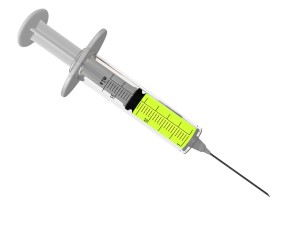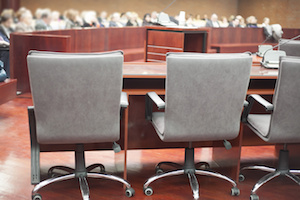Last week, the Ohio Supreme Court dismissed a medical expert witness in an asbestos illness lawsuit because the doctor failed to claim asbestos exposure was the substantial cause of the victim’s fatal cancer. The plaintiff, filing the claim on behalf of her deceased husband, was granted permission to reinstate her case should she find reliable expert testimony that links asbestos exposure to her spouse’s death.
Plaintiff Alleges Asbestos Caused Cancer
Cleo J. Renfrow filed a lawsuit against Norfolk Southern Railway Company alleging that her late husband, Gerald, was exposed to asbestos while he worked for Norfolk Southern from 1968 to 1992. Gerald, who died in 2011 from lung cancer, was a long term employee who, according to Cleo’s lawsuit, had worked close to toxic levels of asbestos without being properly protected by Norfolk Southern. The defendant has argued that Mrs. Renfrow’s lawsuit fails because she was not able to connect asbestos to Gerald’s fatal lung cancer.
Complicating Mrs. Renfrow’s case was Gerald’s 50-year habit of smoking a pack-and-a-half of cigarettes every day. With cigarette smoking a known cause of lung cancer, the lawsuit faced the difficult task of identifying asbestos exposure as a critical factor to the disease that caused Gerald’s death. Although Renfrow did not have a written report from her husband’s physician, a lower court determined that she could pursue a claim if she provided Gerald’s hospital records, history of smoking, asbestos exposure, and an expert witness report from a competent medical authority that testified to asbestos’ effect on Gerald Renfrow’s cancer.
Asbestos Plaintiff Retains Medical Expert Witness
To satisfy the requirement of a competent medical authority who could establish that Gerald’s lung cancer was caused by asbestos exposure, Cleo Renfrow hired Dr. Laxminarayana C. Rao. Dr. Rao argued that asbestos led to Gerald’s illness, but was challenged by Norfolk Southern for not sufficiently connecting the alleged cause with the fatal lung cancer. In his report, Dr. Rao pointed to Gerald’s long-term asbestos exposure, but, according to Norfolk, his expert witness report fell short of the legal standard required to demonstrate cause. After reviewing the case and Dr. Rao’s medical expert testimony, the Ohio Supreme Court agreed and dismissed the case.
Ohio Supreme Court Rules Expert Failed to Connect Asbestos to Lung Cancer
Although Dr. Rao opined that asbestos contributed to Gerald’s lung cancer, the Ohio Supreme Court found that he had not gone far enough. In order for Dr. Rao to be a competent medical authority in an asbestos case, he needed to provide expert testimony that had it not been for the asbestos exposure, the victim would not have contracted cancer. In a toxic tort case such as Mrs. Renfrow’s, a medical expert witness must argue that the chemical is the predominate and significant factor in causing the disease – a step that Dr. Rao had not fully taken.
Writing for the Ohio Supreme Court, Judge Terrence O’Donnell emphasized, “One of the statutory prerequisites necessary to establish a prima facie tort action alleging an asbestos claim based upon lung cancer requires a person who is a smoker to demonstrate a diagnosis by a competent medical authority that the exposure to asbestos is a substantial contributing factor.” Without a medical expert witness testifying to asbestos being the primary factor, Mrs. Renfrow’s case fell short of meeting the legal requirements in Ohio.
When dismissing the case, the Ohio Court noted that Mrs. Renfrow still had the opportunity to reinstate her lawsuit if she could find a competent medical expert witness who could establish that asbestos exposure was the predominate cause of her husband’s death. The Court suggested testimony from Gerald’s treating physician, who would have both credence as an expert witness and direct knowledge of the case.













